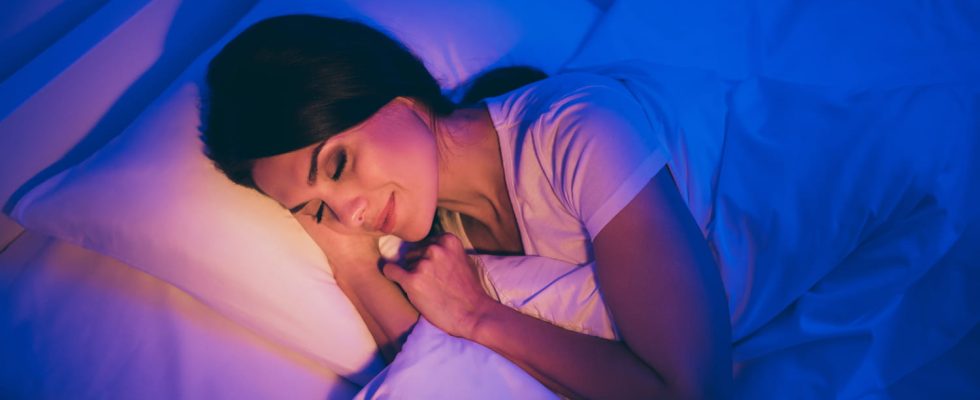Right now, it’s pitch black in the morning and you have to force yourself to get out of bed. Our sleep doctor reveals his tip for waking up at 6 or 7 a.m. without being tired.
The future belongs to those who get up early ! Yes, but this adage is not easy to follow every day, especially in winter, when it is cold and… dark. “Daylight stops the production of melatonin, the sleep hormone. The individual then gradually wakes up. On the other hand, when it is still dark, darkness increases the secretion of melatonin, which helps you fall asleep“explains to us Dr Marc Rey, neurologist and President of the National Institute of Sleep and Vigilance (INSV). This is why it is particularly difficult to wake up when it is still dark outside in the morning. That being said, there is a very simple way to wake up early without difficulty or frustration: listen your biological clock by aligning itself about his sleep cycles. “The ideal is to wake up at the end of a sleep cycle. When you wake up naturally at the end of a cycle, for example 20 minutes before waking up, it is best to get up straight away rather than going back to sleep and starting a new cycle, because otherwise waking up risks interrupting a cycle and being too abrupt“, continues our interlocutor. A sleep cycle lasts approximately 90 minutes and on average, the ideal amount of sleep for an adult varies between 7 and 9 hours per night, divided into 5 to 6 cycles of 90 minutes. Concretely :
→ To wake up easily at 7 a.m.you have to fall asleep at 11:30 p.m. (to have 5 complete sleep cycles) or at 10 p.m. (to have 6 complete sleep cycles)
→ To wake up easily at 6 a.m.you have to fall asleep at 10:30 p.m. (to have 5 complete sleep cycles) or at 21h (to have 6 complete sleep cycles)
In addition to adopting good sleep habits (limit screens in the evening, light dinner, sleep in a dark, cool room), other tips can make it easier to wake up when it’s dark outside:
→ Get up at the first ring of the alarm, without thinking. “The temptation to postpone waking up for a few minutes (the famous “snooze” function) is often strong, but also harmful, because the succession of awakenings disrupts the natural sleep cycles and reinforces the feeling of fatigue“.
→ Regularity is key: you should try to get up at the same time every day (even on weekends if possible) so that the brain gets used to a waking time. “Do sleep in on the weekend disrupts the natural rhythm“, warns Dr. Rey.
→ Use an alarm clock that simulate dawn and the natural brightness of the day which helps you wake up gradually. Light, even artificial light, tricks the brain and tells it that it is time to wake up.
→ It’s quite stupid, but choose a pleasant alarm ringtone rather than a shrill or aggressive sound, to soften the transition period between sleep and wakefulness.
